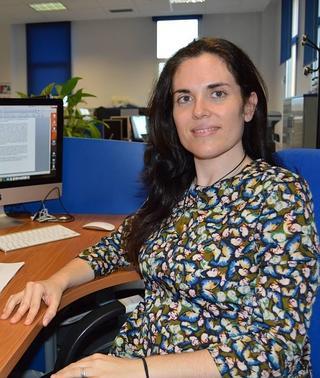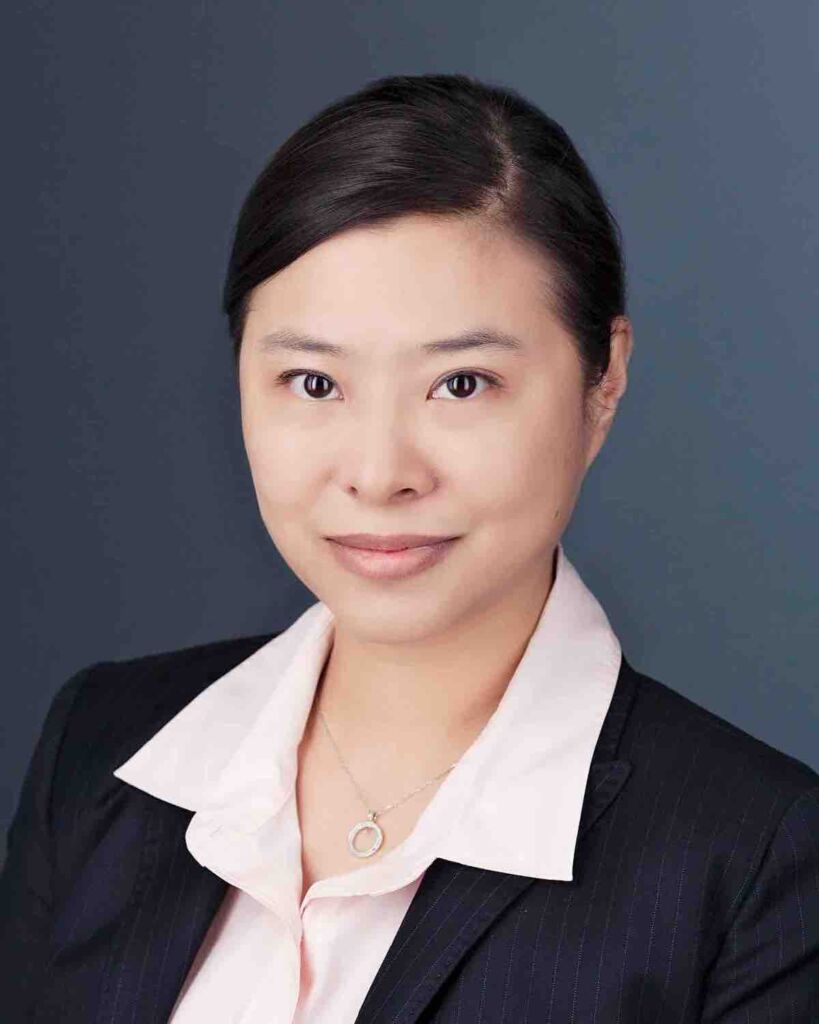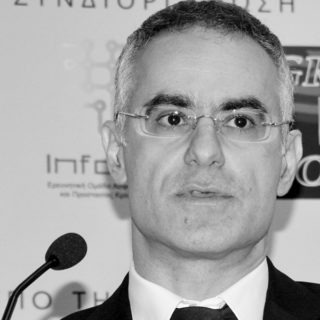Our Advisory Board (AB) consists of 4 renowned members representing both academia and industry with well-established records on several of the core technologies investigated (especially, as it pertains to Trusted Computing where Claire Vishik is also an active member of TCG for many years, Secure Communication and Continuous Authentication through Lightweight Crypto, and Blockchain-based Data and identity Sovereignty); Cristina Alcaraz (Associate Professor at the University of Malaga), Fengjun Li (Professor at the University of Kansas), Claire Vishik (Consultant at Intel), and Christos Xenakis (Professor at the University of Piraeus). They offered valuable insights about research, technology, market and regulation trends that are of relevance to ASSURED.
They are four well-known external, independent experts, covering the Cybersecurity PPP stakeholders’ domains, as well as selected vertical domains, to closely monitor and directly provide consultation to the innovation and technological development activities performed by the consortium participants throughout the project’s lifecycle in relation to steering strategic directions and recommendations and strengthening the dialogue to the cybersecurity community.
Cristina Alcaraz (f) is an associate professor in the area of Telematics Engineering at the University of Malaga. She obtained her PhD degree in Computer Science and her degree in Computer Engineering from the same University in 2011 and 2006, respectively. Her main research activities are focused in the area of Critical Infrastructure Protection, and, specifically, in the cybersecurity of critical systems (e.g. Smart Grid, Industry 4.0/5.0, CPS, IIoT and digital twins), and in topics related to situational awareness, detection and response against potential attacks, and secure interconnection of critical systems.
She was a Ramón y Cajal postdoctoral researcher in 2015-2016 and Marie-Curie in 2012-2015, performing several postdoctoral stays at the National Institute of Standards and Technology (USA, 2011-2012), Royal Holloway University of London (UK, 2012-2014), Università Campus Bio-Medico (Italy, 2017) and NeuroSoft (Greece, 2019). She is author of more than 70 papers, of which 31 are in JCR journals and has a book in Springer on IIoT security, and has supervised three PhD theses, one of them co-supervised with the University of Pireaus. Also, she is currently co-supervising another PhD thesis together with the National Technical University of Antenas.
C. Alcaraz has been (and is) an associate editor member of six international journals, and has been (and is) part of the board of three others, all of them related to his research area, such as: Transactions on Dependable and Secure Computing (TDSC, IEEE), Distributed Ledger Technologies (DLT, ACM), International Journal of Critical Infrastructure Protection (Springer), International Journal of Information Security (IJIS, Springer), IEEE Networking Letters (IEEE) or the International Journal of Critical Infrastructures (Inderscience Publishers). Also, she has been (and is) guest editor of five high impact journals such as IEEE Internet of Things Journal or IEEE Trans. On Industrial Informatics.
She has organized several conferences as Program Chair in several conferences and workshops, and has participated in 14 conferences as Publicity Chair (and in prominent conferences such as ESORICS, ACNS, ISPEC, among many others), in addition to serving as PC member in hundreds of Program Committees of international conferences, all of them, related to the mentioned research areas.
C. Alcaraz has participated in numerous research projects, all of them related to cybersecurity and critical infrastructure protection, acting as PI or co-IP in some of them. On the other hand, she has been part of multiple types of evaluation committees (projects, centers and thesis), and is vice-chair of the IEEE ComSoc SIG on “Green Digital Twin Network”, receiving the recognition of “Women in Homeland Security” from the IEEE SMC TC on Homeland Security in July 2021.
HER FEEDBACKS ABOUT ASSURED
“ASSURED undoubtedly contributes to society and to the scientific community involved in the field of security, privacy and the protection of critical systems, by providing outstanding protection results. This is evidenced not only by the number of publications in different venues, organization of events and collaborations, but also by the rigor with which engineering analyses and validations have been carried out within ASSURED. Attractive and very useful validation scenarios have been considered and presented, and very cutting-edge technologies have been implemented to actively manage complex operations during the entire life cycle of critical systems. Moreover, beyond the thoroughness and exhaustiveness of the results, it is also remarkable the work of the consortium by considering at all times the “efficiency” factor in all its approaches in order not to impact on the underlying system. In conclusion to all this, I would like to highlight once again the success of the project and its results for scientific and social progress, congratulations.”
Dr. Fengjun Li is a Professor in the Department of Electrical Engineering and Computer Science at the University of Kansas. Her research spans a broad area of computer and network security and privacy related to cyber-physical systems, distributed information systems, communication networks, and online social networks. Recently, she has focused on the security of web systems, cyber physical systems, and trustworthy AI systems. Her research has been supported by U.S. National Science Foundation, National Security Agency, Department of Defense, the Ripple University Initiative, etc. She has published over 60 refereed papers in top computer security and networking conferences and journals. She is the recipient of the best paper award of ICPR 2022, ACSAC 2021, and SecureComm 2015.
HER FEEDBACKS ABOUT ASSURED
“The ASSURED project presents a systematic framework design for cyber-physical systems (CPS) with runtime assurance and highly usable security. The project delivered on agreed project objectives including formally verification for software components, runtime risk assessment, and secure and audible data management through innovative designs utilizing trusted computing, blockchain, and lightweight cryptography technologies. For example, its data protection management framework integrates designs of a novel TPM-based blockchain wallet, attribute-based access control (ABAC), and dynamic symmetric searchable encryption (DSSE). Together, it provides trustworthiness, integrity, and privacy protection to data involved in safety-critical functionalities of CPS systems. Project results could have benefitted from integrating semantic relations among attributes used in ABAC into DSSE when extending the DSSE to support the multi-keyword search. The project demonstrates its success in use cases such as smart cities and smart satellite communications. The project results could lead to richer applications in a wide range of cyber-physical systems such as medical devices and supply chains. After ASSURED, further work could be done towards supporting trustworthy interoperation among assured hardware and software components that potentially involve large-scale, heterogeneous data.”
Claire Vishik was until recently Intel Fellow and group CTO before she emarked on new adventures as a founder a CTO of a startup in the spring of 2023. Her work focuses on Artificial Intelligence, hardware and network security, Trusted Computing, privacy-enhancing technologies, some aspects of cryptography and related global policy and trade issues. Claire was appointed to numerous advisory boards and boards of directors for technical organizations and government agencies, such as the Trusted Computing Group (TCG) and TDL (Trust in Digital Life), ENISA, FCC CSRIC, CyBoK, or UK Royal Society Cybersecurity effort. She led or co-led many initiatives, for example, IEEE Blockchain TC, NIST CPC Public Working Group, and Cyber Leap Year Summit. Claire received her Ph.D. from the University of Texas at Austin. In addition to Intel, she held leadership positions at Schlumberger Laboratory for Computer Science and AT&T Laboratories. Claire is the author of numerous peer-reviewed papers and book chapters, editor of several books, associate/advisory editor of two journals, and inventor on 40 pending and granted US patents.
HER FEEDBACKS ABOUT ASSURED
“I was fortunate to attend the AB meeting for ASSURED and am very impressed by what is presented. Below are a few specific thoughts on the results of the project.
General. The project aimed at addressing difficult problems including multi-domain assurance in a complex environment and viable & flexible risk assessments. These problems have baffled technologists for many years and have caused numerous known (and likely even more unknown) security attacks and breaches.
Successful approach. The project escaped the pitfalls in similar large endeavors that either create all new technology environments or provide limited improvements to existing frameworks. Instead, ASSURED combined the use of existing (and sometimes standard) technologies with focused innovation (e.g., extending the DAA protocol, expanding tracing capabilities, and building viable multi-objective risk models), leading to novel, but pragmatic solutions that can be, with some modifications, deployed in practice. Impressively, the security/performance tradeoffs were limited.
Research and practice. The project has built-in technology flexibility focusing on specific features rather than specific components, providing a solid foundation for exploitation. In addition to the refreshing combination of innovation and pragmatism, the members of the consortium published more than 40 peer-reviewed papers, building a foundation for a new generation of research in the areas they addressed.
Post-delivery: R&D. ASSURED uncovered a realistic approach to deliver stronger assurance to multi-domain environments. It is hoped that the research in these areas will continue, especially with regard to tracing and its incorporation into assurance frameworks, run-time assurance for complex environments, new technical ways to support extensive approaches to privacy in hardware and the use of a wide range of metrics in dynamic risk assessment approaches. It is also hoped that the future research could take a closer look at the lifecycle assurance, especially in software and firmware based on different development paradigms.
Post-delivery exploitation. In this advisor’s opinion, the results of ASSURED provide solid premises for a successful commercial platform. This platform could first focus on areas where there is significant unmet demand for complex assurance approaches, such as cyber physical systems. Although all areas of the project achieved tangible successes, a commercial implementation will likely use a subset of the features developed during the lifetime of the project, with the focus on tracing, statistical risk models, flexible implementation of trust and privacy options and a simple AI framework to link available data to potential attacks.”
Prof. Christos Xenakis received his B.Sc degree in computer science in 1993 and his M.Sc degree in telecommunication and computer networks in 1996, both from the Department of Informatics and Telecommunications, University of Athens, Greece. In 2004 he received his Ph.D. from the University of Athens (Department of Informatics and Telecommunications).
From 1998 – 2001 he was with a Greek telecoms system development firm, where he was involved in the design and development of advanced telecommunications subsystems. From 1996 – 2007 he was a member of the Communication Networks Laboratory of the University of Athens.
Since 2007 he is a faculty member of the Department of Digital Systems of the University of Piraeus, Greece, where currently is a Professor, a member of the Systems Security Laboratory and the director of the Postgraduate Degree Programme, on “Digital Systems Security”. He has participated in numerous projects realized in the context of EU Programs (ACTS, ESPRIT, IST, AAL, DGHOME, Marie Curie, Horizon2020) as well as National Programs (Greek).
He is the project manager the CUREX, SECONDO, INCOGNITO and SealedGRID projects, funded by Horizon2020, while he was the project manager of the ReCRED project funded by Horizon 2020 and the technical manager of the UINFC2 project funded by DGHOME/ISEC.
He is also a steering committee member of the European Cyber Security Challenge (ECSC) and the leader of the Hellenic Cyber Security Team. He is a member of the editorial board of three Thomson Reuters indexed journals: a) Computers & Security Journal of the Elsevier publishing, b) Computer Communications Journal of the Elsevier publishing, and c) IET Information Security of the Institute of Engineering and Technology. His research interests are in the field of systems, networks and applications security. He has authored more than 90 papers in peer-reviewed journals and international conferences.





